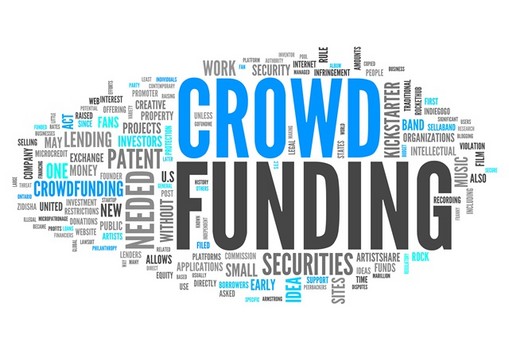I prepared this short presentation as part of the “Feminist Cyborgs: Actvism, Online Fundraising, and Security” webinar, hosted by African Feminist Forum and Association for Progressive Communications.
My 10-minute presentation includes a brief introduction to crowdfunding and some popular crowdfunding tools. Additionally, using my Africans for African new media project as a case study, I share 5 quick tips for running a successful fundraising campaign. The main points from my presentation are outlined as follows, with the actual presentation embedded at the bottom of this post.
Feminist Cyborgs: 5 Tips for Creating Successful Online Fundraising Campaigns
Overview of Crowdfunding
- Sometimes referred to as Crowdfunding
- “Funding via a networked groupâ€
- Using social media networks to raise money for projects
- Collective effort of individuals who network and pool their resources
- Connects people who have needs to the people who can meet those needs
A Few of My Favorite Crowdfunding Platforms
 IndieGoGo: Flexible fundraising rules i.e. you can keep funds you raise even if you don’t meet your goal; permits multiple types of projects (creative, small business etc) to raise funds via the platform
IndieGoGo: Flexible fundraising rules i.e. you can keep funds you raise even if you don’t meet your goal; permits multiple types of projects (creative, small business etc) to raise funds via the platform- Kickstarter: Strictly creative projects; if you don’t raise target funds by deadline, you don’t get any of the money; features include powerful social media marketing tools
- Africans in the Diaspora (AiD): Raises funds for projects based in Africa; includes community philanthropy tools e.g. blogs and resources about fundraising, development, etc, targeting the diaspora.
- 234Give: Nigeria’s first online fundraising platform for charities based in Nigeria (Note: I have not used this platform personally, so this is not an endorsement. Just think it’s cool that African countries are tapping into crowdfunding.)
- GlobalGiving: International fundraising platform; NGOs across the world can register and raise money from top donor countries on this platform, including US, UK, Singapore, India.
- PubSlush: A crowdfunding platform for authors, agents, and publishers. (Note: I have not used this platform personally, but plan to in early 2013).
- ProBueno: My MIT classmate’s startup, crowdsourcing volunteers who donate the cost/value of their services to charities. Neat setup, actually e.g. rather than donate money, I offer (via the platform) my new media consulting services to someone who will pay for them, I donate money earned (e.g. $100/hr for 2 hours) to charity of my choice on the platform. #watchthisspace #itmaychangethegame
Introduction to Online Fundraising
- A little money goes a long way
- By pooling smaller amounts of money from a groups with common interest, larger financial goals are achievable
- Social media makes it easier for people with similar interests to connect; great potential for raising capital for projects
- Large capital is reduced as a barrier to doing good due to growing popularity of online fundraising in philanthopy sector
- In 2011, online giving grew in double-digit percentages across ALL sectors (so, not just NGOs working with orphans who could show cute photos — everyone is benefiting)
Things to Remember
- Social media = media that is social, period.
- Don’t confuse the tools (social media, which is technical) with the task (asking for money, which is human)
- Having a Facebook Page does not guarantee you money.
- You (a person) must raise funds from your network (people)
- The quality of your network = The quality of your relationships with individuals in that network
- Offline fundraising principles apply online.
Africans for Africa Project: A Case Study
- Independent project training African-women led NGOs to use new media
- Raised ~$15,000 in 30 days via online fundraising campaign
- Focus on Women, Youth, Gender & Sexuality Issues
- South Africa, Namibia, Botswana
- One-on-One Consulting and Team Sessions for Organizations
- Online Fundraising Workshops (Open to the Public)
- Over 400 workshop participants, 60 organizations
5 Tips for Online Fundraising

Tip 1: Learn to “Askâ€
The most important element of any campaign is the “ask.â€
- You must ask before you can receive. (Note: The most popular reason cited by people as to why they didn’t give is “No one asked me.â€)
- For Africans for Africa: In addition to bulk emails, I sent personal emails, FB messages, text messages, and phone calls to individuals. In world 2.0, going the extra mile to personalize communications to individuals will achieve better results than “mass”/public calls to action.
- Lesson: Practice and test your with different (trusted) audiences; don’t play with live money.
 Tip 2: Know Your Audience
Tip 2: Know Your Audience
You wouldn’t ask your best friend for money in the same way you would ask a professional colleague, would you?
- Different audiences require different messages.
- Don’t speak to everyone in the same way — you don’t know all of these people in the same way.
- Africans for Africa: “MIT Classmates†received different messaging from “Activistsâ€, who received different messaging from “Feminists” and “Fellow Social Media Gurus”. Also, I bombarded my brother with requests to donate (cause I can do that) but only sent an email per week to more professional contacts so as not to “annoy” people.
- Lesson: Segment your list, create messages and themes for each before you begin sending communications. Make sure frequency reflects the relationship.
 Tip 3: Trust Your Inner Circle Power
Tip 3: Trust Your Inner Circle Power
People give money because they trust you.
- People will give to organizations and individuals with credibility, that they trust will use their donation towards the states goals.
- Study shows that number one factor influencing trust is actually recommendations from friends and family.
- Africans for Africa: Bulk of my donations came from close friends, who encouraged others to contribute as well. I found that I didn’t have to ‘sell’ my project to friends of friends. Here’s what happened, a lot: “You’re __’ friend, which means you must be awesome. Here’s _ dollars.”
- Lesson: Don’t ignore your family and friends. They’re you’re biggest advocates and can help you raise even more money (if you “ask†them to).
 Tip 4: Set (Realistic) Goals
Tip 4: Set (Realistic) Goals
Fundraising isn’t about luck. You must set goals to meet.
- People (yourself included) are more driven to give by public benchmarks.
- Africans for Africa: I asked 15 people to contribute, every day, to increase chance of meeting goal of 10 donors per day. I also declared my goals publicly every day, to make sure I was also putting pressure upon myself to deliver “success” stories and momentum.
- Lesson: Set daily, weekly, and monthly goals. Make them public. People want to help. And if they see mini-goals as possible, they’re more likely to give. Also, if you set daily goals for yourself, you’re more likely to brainstorm creatively when you see you’re at risk of not meeting them! (e.g. 4 pm, I said I’d have 10 donors by 5, I only have 8 — eeek! *Proceeds to call everyone and their mama*)
 Tip 5: Recognition and Gratitude
Tip 5: Recognition and Gratitude
There’s a reason you always see “Thank You†on a sales receipt.
- People need to feel appreciated in order to stay engaged.
- Africans for Africa: Different perqs came with encouraging titles and levels of recognition, such as “Allyâ€, “Champion†etc. I also always sent immediate Thank Yous and social media shout-out to new donors. I didn’t wait till the end of the campaign to thank them, and it worked; a few of them, now that they had already donated, helped me raise more money from their networks because they felt included, and appreciated.
- Lesson: Come up with creative ways to recognition, before and after the “ask†in order to nurture repeat-givers and advocates.
Most Important Tip: Be Human
Connect with people’s hearts. Facebook doesn’t make campaigns successful; people do.
 Your story matters; why you care about this project matters
Your story matters; why you care about this project matters- “People connect with people, not campaigns.†– ZerobyZawadi
- Africans for Africa: My campaign story was about “meâ€Â i.e. why I wanted this project to succeed, its impact on me, personally, and the lives of people I deeply care about.
- Lesson: Reflect on why this project really matters; avoid some regurgitated version of your organization’s mission statement — toss that immediately. Reflect and communicate why this project really matters — to you, and to the people you care about. Be honest. Be vulnerable, even, and people will rise to the occasion to help you succeed.
The End!
Interested in New Media Consulting? If you’d like to schedule a full or half-day workshop on online fundraising for your organization or individual campaign, please don’t hesitate to contact me via the “Contact Me” button on the sidebar.
Alternatively, if you’re thinking of launching an online fundraising campaign and would like some feedback on your current online fundraising efforts (including social media audit, list preparation, messaging, and engagement strategy), mention this blog post to receive an online fundraising consultation via Phone or Skype at $75/hr for the first hour, and $100/hr thereafter. If you’re seeking a social media campaign manager for a longer, fixed period, we can chat about that, too! Use the “Contact Me” button to send me an email. Please allow at least 48 hours for me to respond to you.
Note: I offer lower rates to grassroots groups whose primary targets include either of the following groups — Women, LGBTI, Africans/POC.Â





